12th National Public Health Conference
Symposia
Symposium 1.1
Strengthening Disease Detection Using Epidemiological Intelligent Tools: Key Messages from the WHO Western Pacific Regional Office
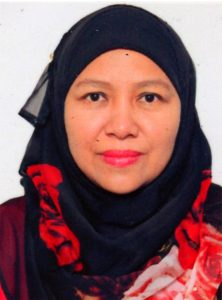
Synopsis – I recently had the invaluable opportunity to serve as a Field Epidemiology Fellowship Programme (FEFP) Fellow at the World Health Organization (WHO) Western Pacific Regional Office (WPRO) in Manila for 10 weeks. This experience was both professionally enriching and personally transformative. During my placement, I was based with the Health Emergencies Programme Division (WHE), specifically the Health Intelligence and Management (HIM) Team, which oversees event-based surveillance (EBS), risk assessment, and response coordination. The system is operated by a team of epidemic intelligence officers comprising WHO staff, fellows from regional Field Epidemiology Training Programmes (FETPs), and seconded public health professionals. Signal screening is conducted twice daily, seven days a week, using both unofficial sources (e.g., media, ProMED, GPHIN) and official channels (e.g., IHR notifications, Member States, WHO Country Offices, FAO). Risk assessments are carried out through event verification with Member States or official sources, and responses may involve information sharing, resource mobilisation, deployment, or technical guidance. The multicultural and multidisciplinary environment at WPRO fostered deep learning and meaningful cross-cultural collaboration. I engaged with public health experts from across the region, gaining not only technical knowledge but also insight into regional health challenges and innovative response strategies. This fellowship has strengthened my commitment to global health and equipped me with valuable skills and perspectives that I will carry forward in my public health career. I am grateful to WHO WPRO and all my mentors and colleagues for their support and inspiration throughout this journey.
Speaker’s Biodata – Dr Sunita Binti Abdul Rahman is a senior public health physician with over 25 years of dedicated service in Malaysia’s healthcare system. She currently holds the position of Deputy State Health Director (Public Health) at the Perlis State Health Department. A graduate of Universiti Sains Malaysia (MD, 1999), she also holds dual Master’s degrees in Public Health and Family Health from Universiti Malaya. Her professional development includes advanced training through the Ministry of Health’s Epidemic Intelligence Program and the World Health Organization (WHO) Western Pacific Region Field Epidemiology Fellowship. Dr Sunita’s career has spanned key leadership roles at district, state, and national levels, with notable contributions in epidemiology, disease surveillance, and international port health control. She has served across multiple states—Kedah, Penang, and Perlis—leading units in communicable disease control, primary healthcare, and maternal and child health. Renowned for her expertise in outbreak response and strategic planning, Dr Sunita has played a vital role in shaping Malaysia’s public health preparedness and response systems. Her leadership is marked by a strong integration of clinical acumen and public health insight, underpinned by a steadfast commitment to health system resilience and community well-being.
Symposium 1.2
Leveraging Artificial Intelligence (AI) and Dashboards for Public Health Surveillance and Reporting
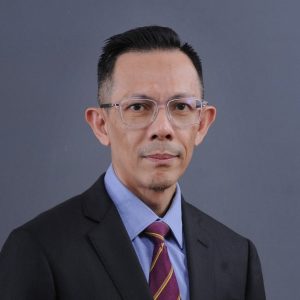
Synopsis – Modern infectious disease surveillance has evolved from passive reporting systems to comprehensive approaches integrating multiple data streams. As demonstrated by the Johns Hopkins COVID-19 Dashboard, which processed over 226 billion data requests and attracted 3.6 billion views, effective surveillance systems now combine clinical, laboratory, and environmental data through automated collection, fusion logic, and anomaly detection services. This transformation has been driven by globalization and increasing cross-species transmission risks, demanding more responsive surveillance capabilities. Artificial intelligence (AI) and advanced analytics enhance infectious disease surveillance through predictive modelling and pattern recognition. Machine learning algorithms enable early outbreak detection, while natural language processing facilitates data mining from unstructured sources. The integration of automated online sewage virus enrichment robots with AI models, as seen in recent Monkeypox (Mpox) surveillance efforts, has demonstrated remarkable precision in predicting case numbers, capturing 87% of data variability through stacking ensemble approaches that combine multiple algorithms for improved accuracy. Research shows that clinician-centered dashboard design significantly improves engagement, with studies reporting 72-79% favorable responses and 64-98% of users reporting practice improvements. Mobile applications integrated with dashboards enable geographically dispersed real-time data capture, enhancing early detection capabilities. Despite their potential, implementing AI-powered dashboards faces significant challenges. Data quality issues include inconsistent collection methods and interoperability problems across different systems. Technical challenges involve the need for standardized parameter definitions, with studies showing divergent interpretations of indicators like “cases,” “deaths,” and “recoveries.” Adoption barriers exist where implementation lacks user-centered design approaches. Ethical considerations around privacy must be addressed, particularly when analyzing sensitive data from wastewater surveillance and other passive collection methods that might reveal population-level patterns without individual consent.
Speaker’s Biodata – Professor Kamarul Imran Musa is a medical epidemiologist and VK7 Professor of Epidemiology and Statistics at the School of Medical Sciences, Universiti Sains Malaysia (USM). He currently serves as Research Coordinator for Clinical Science and Health and also leads the Digital Health Unit within the same faculty. He is a senior public health physician under Malaysia’s Ministry of Health and a Fellow of the American College of Epidemiology (FACE). A prolific researcher with over 180 SCOPUS-indexed publications, he has amassed more than 85,000 citations and holds an h-index of 51. Ranked among the world’s top 2% most cited scientists, his work has made a profound impact on the field. He has also guided eight Doctor of Public Health, and five PhD candidates to successful completion. His core interests include epidemiological and statistical modelling, alongside the integration of artificial intelligence in healthcare. He has authored two books on data analysis and modelling and regularly leads postgraduate-level courses in epidemiology and applied statistics at all levels. Through his research and teaching, Professor Kamarul continues to drive the evolution of digital health and data-informed public health policy in Malaysia.
Symposium 1.3
Deployment of Artificial Intelligence (AI) Models for Smart Infectious Disease Tools

Synopsis – The deployment of artificial intelligence (AI) models is creating new opportunities for smart infectious disease tools, enhancing surveillance, predictive analytics, and timely public health responses. Yet, translating AI innovations into sustainable field applications remains challenging, particularly in resource-constrained settings. This presentation shares practical experiences and lessons from the World Health Organization (WHO)-supported initiatives focused on deploying AI for infectious disease control. In the Philippines, an AI prototype was developed to predict tuberculosis treatment outcomes with high accuracy. Another example is the dynamic predictive disease modelling platform, which combines health program data with contextual and environmental information across all 42,000 barangays. This high-resolution model identified TB hotspots, estimated missing cases, and recommended prioritized TB screening locations. AI also supports outbreak intelligence through the Epidemic Intelligence from Open Sources (EIOS) platform, using AI-powered text mining and multilingual analytics to scan global news and social media for early signals of public health threats. At the regional level, a high-resolution contextual mapping initiative covering the entire Western Pacific Region was implemented. This tool focused on mapping and visualizing population vulnerabilities, health access, and risk factors, including for communicable diseases. The platform is built for advanced modelling and predictive analytics as data availability improves. In Singapore, the AI Assistant for Telephone Triage demonstrated how AI models improve emergency health responses. WHO is now collaborating with the same developers to design a new AI-powered public health surveillance and behaviour change solution, leveraging AI for outbreak monitoring and health promotion at scale. These initiatives align with WHO’s Global Initiative on AI for Health, emphasizing responsible governance, localization, and sustainable investments. Ultimately, smart infectious disease tools powered by AI must deliver actionable intelligence, equitable access, and strengthened epidemic preparedness.
Speaker’s Biodata – Dr. Rajendra-Prasad Yadav is a distinguished public health professional with over three decades of experience in communicable disease control and health systems strengthening. Currently serving as a Coordinator at the World Health Organization (WHO)’s Western Pacific Regional Office, he leads the transformation of primary healthcare with a focus on digital innovation and AI-driven solutions. His journey began as a medical lecturer in Mumbai, followed by key WHO roles across India, Papua New Guinea, Cambodia, and the Philippines. Dr Rajendra has played pivotal roles in national and regional responses to tuberculosis, integrating community engagement with strategic policy-making. His leadership as Acting WHO Representative and Team Lead in the Philippines has shaped multi-sectoral collaborations and digital surveillance tools, improving health outcomes. He holds an MD in Preventive and Social Medicine from Mumbai University and has authored over 25 peer-reviewed publications, including studies on TB, HIV, dengue, and health system financing.
Symposium 2.1
The Interconnectedness of Human and Planetary Health
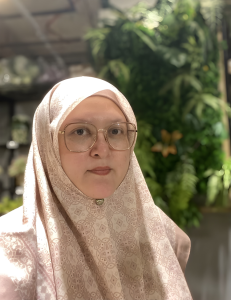
Synopsis – In recent decades, the distinction between human health and planetary health has blurred, revealing an intricate network of interdependence. Human and planetary health are intrinsically intertwined, with each influencing the well-being of the other. The concept of planetary boundaries represents key environmental thresholds, and exceeding any of these limits could trigger catastrophic and irreversible changes in Earth’s systems. Pollution, ecosystems degradation, biodiversity loss, and climate change not only threaten planetary sustainability but directly impact public health. These environmental crises contribute to rising incidences of infectious diseases, as well as non-communicable respiratory illnesses, and mental health challenges. Environmental changes and ecosystem disruptions can facilitate the emergence and spread of zoonotic diseases, while unsustainable agricultural practices and overuse of antibiotics in humans and livestock contribute to the growing threat of antimicrobial resistance. Conversely, human anthropogenic activity through deforestation, industrial activity, agriculture, energy consumption, and waste generation continue to accelerate environmental degradation and climate change.
Emerging solutions advocate for a healthier, more sustainable relationship between humans and the planet by focusing on reducing emissions, conserving biodiversity, and promoting sustainability. Protecting and restoring the planet can enhance human health by improving air quality, reducing environmental illnesses, and promoting sustainable systems that support environmental resilience. Integrating vulnerability and adaptation assessments into community and healthcare systems is also crucial for building resilience. These assessments help identify populations at risk, particularly the elderly, children, low-income groups, and those with chronic illnesses. These assessments help identify vulnerable populations and enhance the healthcare system’s capacity to deliver high-quality care amidst climate impacts and related health outcomes.
Understanding the interconnectedness of human and planetary health is essential in tackling global health challenges and ensuring the resilience of both human and ecosystems for future generations. Addressing this interconnectedness requires a holistic approach that integrates environmental sustainability within public health strategies, and fosters cross-sectoral collaboration.
Speaker’s Biodata – Dr Rohaida binti Ismail currently leads the Environmental Health Research Centre at the Institute for Medical Research, National Institutes of Health, Malaysia. She earned her medical degree from University Kebangsaan Malaysia in 2000 and completed her Master’s in Community Medicine (Environmental Health) in 2009. Her career as a public health medicine specialist began in 2009, focusing on environmental and occupational health programmes for communities and healthcare facilities, including risk assessment, health surveillance, and training. In 2019, she completed the Ministry of Health’s Public Health Subspecialty Training Programme in Environmental Health, with a focus on climate change. Her research interests include health vulnerability and adaptation to climate change, health effects of environmental degradation, work-related non-communicable diseases, and toxicology. As part of the Ministry’s team of environmental health experts, she is currently contributing to national initiatives, such as enhancing research on the children’s environmental health birth cohort and the human biomonitoring programme. She is also actively involved in the Malaysian Society for Environmental Epidemiology and is a member of The International Society for Environmental Epidemiology’s Asia and Western Pacific Chapter.
Symposium 2.2
Deploying Nuclear Power for Climate Change Adaptation
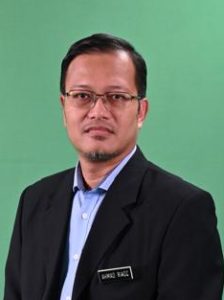
Synopsis -Nuclear power can support climate change adaptation by providing low-carbon, reliable energy to address water scarcity and climate change. Nuclear power plants (NPPs) are used for desalination to supply water in required regions and to power infrastructure such as cooling systems or emergency services. Small modular reactors (SMRs) and floating plants enhance flexibility for remote areas. NPPs should be designed to withstand earthquakes and tsunamis, with robust flood defences and drought-resistant cooling systems, including upgrades to existing ones based on Intergovernmental Panel on Climate Change (IPCC) climate risk assessments. New NPP development requires updated climate risk regulations, streamlined approvals, and efforts to build public trust through transparent communication. Building NPPs would incur large initial investments, require financing and trained skilled workers, and must address safety concerns through advanced technologies. Various challenges can be addressed through international collaboration, including sharing best practices, supporting developing nations, and fostering innovation via global R&D (e.g., thorium reactors). Though nuclear energy contributes to reducing only 2–3% of global emissions, increasing capacity remains a challenge, alongside ongoing public concerns.
Speaker’s Biodata – Dr Ahmad Riadz Mazeli is a public health physician with the Ministry of Health Malaysia (MOH). Dr. Riadz brings over 15 years of expertise at the intersection of public health, environmental safety, and radiation risk management. He is currently based in the Environmental Health Unit, Disease Control Division (2011–present). He represents MOH on national committees overseeing naturally occurring radioactive materials (NORMs), rare earth industries, nuclear power safety, radioactive waste management, and radiation emergency preparedness. During the COVID-19 pandemic, he provided technical environmental health guidance to key agencies, including the Department of Environment (DOE), Department of Occupational Safety and Health (DOSH), and the National Disaster Management Agency (NADMA). He also contributed to MOH’s own strategies for environmental health management during flood-related disease outbreaks.
Symposium 2.3
Updates in Air Pollution Epidemiology in Malaysia: Current Research and Future Challenges
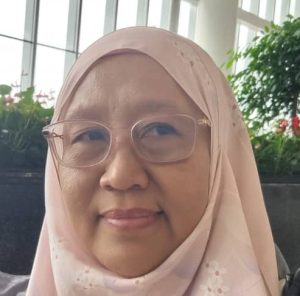
Synopsis – Air pollution is the second highest risk factor for noncommunicable diseases (NCDs). Major contributors to air pollution in Malaysia are industrial and vehicular emissions, construction activities, open burning, agricultural practices and transboundary haze. Air pollution epidemiology studies the relationship between air pollution and health outcomes in populations. It is divided by the two different mechanisms by which air pollution exposures affect human health: short- and long-term studies. The State of Global Air Report highlights that air pollution was responsible for 8.1 million deaths globally in 2021, making it the second leading risk factor for death, including for children under five years. In Malaysia, respiratory illnesses were the second leading cause of death (14.8%) in 2019, while cardiovascular diseases were the underlying cause of 7.9% of deaths in hospitals. Current challenges include meeting health-based standards for common air pollutants, mitigating climate change, reducing exposure to toxic pollutants, and protecting the ozone layer. Some key issues in the era of AI and digitalisation among others are data accessibility and integration, policy and governance, integrating AI models into public health systems which requires careful planning and infrastructure readiness, enhancing Public Health Surveillance through AI-powered dashboards and digital tools and successful digitalisation efforts require partnerships between researchers, app developers, and patient groups to ensure practical implementation and usability. The efforts to reduce air pollution in Malaysia align closely with several SDGs, including SDG 7 (Affordable and Clean Energy), SDG 13 (Climate Action), and SDG 3 (Good Health and Well-being). While the government has deployed several policies to control air pollution, more aggressive action is needed.
Speaker’s Biodata – Professor Mazrura Sahani is a leading expert in environmental and occupational epidemiology with over three decades of experience in public health research. She is currently honorary professor at the Centre for Toxicology & Health Risk Studies (CORE), Universiti Kebangsaan Malaysia (UKM), and is widely recognised for her groundbreaking work on air pollution, climate change, and children’s environmental health. Professor Mazrura holds a PhD in Environmental Epidemiology from the University of Western Sydney, a Master of Public Health from UKM, and a medical degree from the Catholic University of Leuven. Her research has contributed extensively to understanding the health impacts of PM2.5, haze, and urban pollution in Malaysia and the region. She has published prolifically in high-impact journals such as BMJ Open, Environmental Research, and The International Journal of Epidemiology. Her collaborative work with the World Health Organization (WHO), Association of Southeast Asian Nations (ASEAN) bodies, and regional academic networks has informed both policy and practice in climate resilience and environmental health governance. Beyond academia, Professor Mazrura has authored national guidelines, served on technical committees, and mentored a new generation of environmental health professionals. Her work continues to shape Malaysia’s response to the growing health challenges posed by climate and environmental change.
Symposium 3.1
Using Decision Modelling to Enhance Health Behaviour Change Among Patients with Noncommunicable Diseases
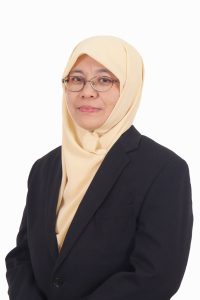
Synopsis – Noncommunicable diseases (NCDs) such as diabetes, cancer, and heart disease continue to present significant public health challenges around the world. A critical component of managing these conditions lies in encouraging sustained behaviour change, yet traditional interventions often fall short due to complex individual and environmental factors. In the era of digitalisation and artificial intelligence (AI), by integrating behavioural science theories with data-driven decision support systems, decision modelling enables the simulation of patient choices, predicts behavioural outcomes, and optimises intervention strategies. This presentation will examine how decision modelling techniques, including decision trees, Markov models, and agent-based modelling (ABM), can be utilised to enhance health behaviour change among patients with diabetes, cancer, and heart disease. In diabetes care, Markov models are frequently employed to project long-term complications based on lifestyle choices and medication adherence, aiding clinicians and patients in making informed decisions. In heart disease, decision tree analysis and cost-effectiveness models direct interventions such as rehabilitation programs, dietary modifications, and wearable health monitoring. For cancer patients, particularly in survivorship care, agent-based modelling can simulate how individual behaviour and psychosocial factors affect long-term health outcomes and recurrence prevention. These models become more impactful when integrated with AI and digital tools, enabling real-time data collection, personalised risk predictions, and adaptive interventions. Mobile health apps, wearable sensors, and predictive algorithms can contribute to decision models to tailor behaviour change strategies. By highlighting case studies, this presentation will illustrate how decision modelling, combined with digitalisation and AI, can transform public health strategies. It allows both healthcare providers and patients to make evidence-based choices that foster sustainable behaviour change, ultimately enhancing quality of life and clinical outcomes for those affected by these chronic conditions.
Speaker’s Biodata – Dr Maslin Masrom is an Associate Professor at the Faculty of Artificial Intelligence, Universiti Teknologi Malaysia, Kuala Lumpur. She teaches a range of undergraduate and postgraduate courses, including: Decision Modelling and Analytics, Introduction to Artificial Intelligence, Management Information Systems, ICT Ethics and Society, Knowledge Management and Technology, and Research Methodology. She is a certified HRD Corp Train-the-Trainer (HRDF Certified Trainer) and has conducted numerous training sessions and workshops both locally and internationally. Her active involvement in capacity-building and professional development reflects a strong commitment to knowledge dissemination in the fields of artificial intelligence and information systems. Dr Maslin has published extensively in journals, books, and conference proceedings. Her primary research interests include Information Systems and Information Technology, Artificial Intelligence, Online Social Networking, Women and Technology, Cloud Computing in Healthcare Systems, Ethics in Computing, Decision Modelling, and Structural Equation Modelling.
Symposium 3.2
Artificial Intelligence (AI) for Behavioural Insights: From Theory to Practice
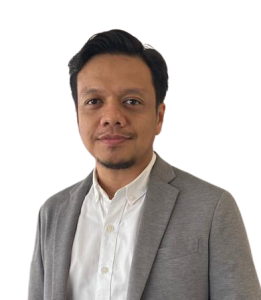
Synopsis – Understanding human behaviour is key to designing effective health interventions, but it remains a complex challenge due to its subjective nature and susceptibility to biases. While artificial intelligence (AI) cannot fully predict or replace human behaviour, it is a valuable tool for supporting behavioural insights. This presentation explores how AI can assist, and not replace behavioural science in practice. By combining AI with behavioural science frameworks such as the EAST model (Easy, Attractive, Social, Timely) and the COM-B model (Capability, Opportunity, Motivation – Behaviour), we can create strategies that align more closely with how people actually think and behave. For instance, AI analyses data such as health records, fitness trackers, and app usage to identify patterns, enabling personalised messages or reminders tailored to individual needs. However, it is essential to use AI responsibly. Ethical considerations, including transparency, consent, and fairness, are crucial to ensuring that AI-driven interventions remain people-centred and trustworthy. In summary, AI can transform behavioural insights into actionable, scalable strategies. When used responsibly, AI strengthens health interventions and supports the development of fair, evidence-based health policies.
Speaker’s Biodata – Dr Saiful Adli bin Suhaimi is a Health Education Officer and currently heads the Behavioural Insights Unit at the Institute for Health Behavioural Research (IPTK), National Institutes of Health (NIH), Malaysia. Since 2022, he has led the Behavioural Insights Unit, which focuses on embedding evidence-based behavioural approaches into health policy and programme design. Dr Saiful holds a PhD in Health and Fitness from Universiti Malaya, where his research focused on reducing sedentary behaviour through behaviour change communication strategies. His current work centres on behavioural science research and training, with a special emphasis on applying behavioural insights to improve public health interventions. Beginning his career at the Health Education Division of the Ministry of Health Malaysia, he has since gained almost 20 years of experience spanning multiple public health functions within the Ministry. He has played a key role in the development of national health promotion programmes and policies related to active living, including the 10,000 Steps Campaign, the formulation of the Malaysian Physical Activity Guidelines, and the National Strategic Plan for Active Living.
Symposium 3.3
Healthy Bytes: Big Data Shaping Population Health and Promoting Well-being
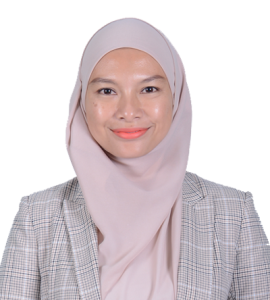
Synopsis – The digital era has ushered in unprecedented volumes of health-related data from diverse sources, including electronic health records, wearable devices, social media, and public health surveillance systems. Big data has emerged as a transformative force in public health, offering new opportunities to understand population-level health trends, predict disease outbreaks, inform policy, and design targeted health promotion strategies. This study explores how big data contributes to shaping population health and promoting well-being through a systematic literature review of peer-reviewed studies published in the last decade. The review focuses on identifying key domains where big data has made significant impact, such as predictive analytics, personalized health interventions, real-time monitoring, and community health engagement. Findings from the study reveal that big data analytics has enhanced the efficiency of health systems by enabling early detection of health risks, improving decision-making, and supporting evidence-based public health campaigns. In health promotion, big data supports tailored messaging, behavioural tracking, and evaluation of programme effectiveness, contributing to more inclusive and equitable health outcomes. This study aims to provide public health professionals, researchers, and policy makers with an overview of current trends, applications, and considerations for leveraging big data in population health management and health promotion.
Speaker’s Biodata – Dr Nurhidayah Bahar is a Senior Lecturer at the National University of Malaysia, where she plays an active role in advancing the field of information systems. She holds a Bachelor’s degree in Information Technology, specialising in Software Engineering, from Universiti Malaysia Terengganu. She subsequently earned her Master’s degree in Information Technology from Universiti Teknologi MARA, followed by a PhD from Universiti Malaya. Her research focuses on information systems, with particular interests in knowledge management, health informatics, database systems, and e-commerce. She explores the application of these domains across a range of sectors, including education, business, healthcare, retail, and finance. Dr. Nurhidayah employs a variety of research methodologies, with a strong emphasis on qualitative approaches. Beyond academic contributions, her work has practical relevance, offering insights that inform both real-world applications and industry practices. Her interdisciplinary focus and translational research continue to support innovation and digital transformation across multiple fields.
Symposium 4.1
Artificial Intelligence (AI)-Driven Approaches to Addressing Non-Communicable Diseases (NCDs): Opportunities and Challenges
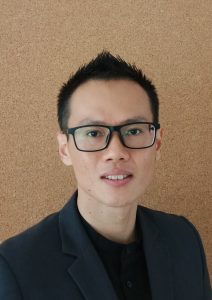
Synopsis – Non-communicable diseases (NCDs), including cardiovascular diseases, diabetes, and cancer, are responsible for a large portion of global morbidity and mortality. Artificial intelligence (AI) has emerged as a powerful tool in transforming the prevention, diagnosis, and management of NCDs, offering innovative solutions while also presenting notable challenges. AI algorithms, particularly those using machine learning, can analyse large amounts of clinical, genetic, and lifestyle data to identify individuals at high risk for developing NCDs. This allows targeted interventions, potentially delaying or preventing disease onset. Advanced machine learning models can also analyse medical imaging, genetic data, and electronic health records with high accuracy, enabling earlier diagnosis of diseases such as cancer and diabetic retinopathy. AI also facilitates personalised treatment by predicting individual therapy responses, optimising drug regimens, and minimising adverse effects. Wearable devices integrated with AI algorithms enhance real-time monitoring, alerting users and healthcare providers to potential health risks. Despite these opportunities, several challenges remain. Data privacy and security are significant concerns, as AI systems require large amounts of sensitive patient information, raising ethical and regulatory issues. Another vital issue is algorithmic bias, where AI models trained on non-diverse or non-representative datasets may produce inequitable outcomes for underrepresented populations. Resistance from healthcare professionals and patients due to the ‘black box’ nature of some AI systems also poses a barrier to trust and adoption in NCD care. In conclusion, while AI holds immense potential in transforming NCD care, addressing ethical, technical, and regulatory challenges is essential for its equitable and effective implementation. Collaborative efforts among public health policymakers, clinicians, and technologists are crucial in harnessing AI’s full capabilities to combat NCDs.
Speaker’s Biodata – Dr Wan Kim Sui is a public health medicine specialist whose work informs national-level policy on non-communicable diseases (NCDs). A medical graduate of Universiti Kebangsaan Malaysia (2010), he has served across multiple levels of the healthcare system, from health clinics and hospitals to district and state health departments, acquiring deep operational and policy experience. His interest in connecting NCD clinical management with public health programs and policies led him to pursue his postgraduate studies at Universiti Malaya. His exceptional thesis on diabetes and cardiovascular risk factors earned him both a Master of Public Health (with Distinction) and a Doctor of Public Health (with Distinction). In recognition of his scholarly impact, he was honoured as the inaugural recipient of the Dr Wu Lien-Teh Award (2022), a prestigious accolade celebrating excellence in public health leadership. Currently, Dr Kim Sui leads the Centre for Burden of Diseases Research at the Institute for Public Health and heads the NCD Cluster under the Ministry of Health Malaysia Research Grant. Combining research excellence with evidence based insights, he continues to champion data-driven, equitable approaches to reduce the burden of NCDs in Malaysia.
Symposium 4.2
From Data to Action: Artificial Intelligence (AI) and Digitalisation in the Fight Against Diabetes
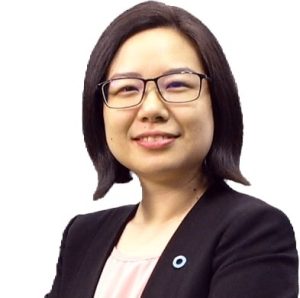
Synopsis – The global diabetes epidemic demands urgent, data-driven solutions. This presentation explores how artificial intelligence (AI) and digitalisation are revolutionising diabetes care, from early detection to personalised management and population-level interventions. Drawing on real-world examples and emerging research, the lecture highlights the transformative potential of AI-powered tools, including predictive algorithms, remote monitoring systems, and digital health platforms in improving health outcomes. By bridging the gap between innovation and implementation, this presentation aims to empower clinicians, policymakers, and researchers to adopt a proactive approach in leveraging technology for better diabetes care. This multifaceted approach can serve as a catalyst for meaningful reform across the diabetes care continuum.
Speaker’s Biodata – Professor Lim Lee Ling is a Consultant Endocrinologist and Head of the Diabetes Care Unit at Universiti Malaya Medical Centre, Kuala Lumpur, Malaysia. She also holds an honorary position at the Chinese University of Hong Kong and the Baker Heart and Diabetes Institute, Melbourne, Australia. As a clinician-scientist, her major areas of interest are cardiometabolic medicine with translational and implementation science components. She sits on the Scientific Work Groups of the ADA/EASD Precision Medicine in Diabetes Initiative and the World Health Organization (WHO) Global Diabetes Compact. She has published more than 100 peer-reviewed articles, including The Lancet, Nature, Diabetes Care, and Science Bulletin. Professor Lim has received several awards including the World’s Top 2% Scientists by Stanford University (2022-2024) and the EFSD Albert Renold Fellowship, tenable at the University of Oxford, UK. She is an editorial board member of several Tier 1 Web of Science-indexed journals. She is also the Vice President of the Malaysian Osteoporosis Society, Honorary Asst Secretary of the Malaysian Endocrine and Metabolic Society (MEMS), and Council Member of Diabetes Malaysia, a country affiliate of the International Diabetes Federation.
Symposium 4.3
Integrating Artificial Intelligence (AI) and Digital Tools in Cancer Screening in Malaysia
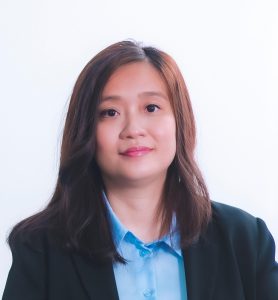
Synopsis – This presentation explores Malaysia’s strategic efforts to integrate artificial intelligence (AI) and digital tools into its healthcare system, particularly in the field of pathology, as supported by national policies. These initiatives are transforming diagnostic capabilities and improving early cancer detection, ultimately leading to better patient outcomes. AI’s application in cancer diagnosis is exemplified through its use in cervical cancer screening via image analysis of Papanicolaou (Pap) smears. AI algorithms enable more accurate detection of abnormal cells, reducing human error and enhancing diagnostic efficiency. Similarly, AI-driven tools support the diagnosis of pancreatic cancer by analysing fine needle aspirates (FNA), allowing pathologists to identify malignant cells with greater precision. In addition, AI is contributing to the detection of infectious diseases through whole slide imaging, facilitating rapid, large-scale screenings that bolster public health responses—particularly in remote areas. A key milestone in Malaysia’s digital pathology transformation is the development of a national telepathology network. This enables remote consultations and access to expert opinions, allowing healthcare facilities in underserved regions to benefit from specialised diagnostic services and ensuring more equitable access to high-quality care. The successful adoption of AI and digital tools in Malaysian healthcare relies on the establishment of robust regulatory and ethical frameworks. These frameworks are essential to ensure patient safety, data privacy, and equitable access to AI-powered diagnostics. By prioritising these elements, Malaysia is fostering the responsible and effective integration of AI in clinical practice. In conclusion, Malaysia’s adoption of AI and digital tools in cancer screening, supported by effective policies and regulatory frameworks, is advancing the country’s healthcare system. These innovations are enhancing diagnostic precision, improving patient outcomes, and ensuring broader access to cutting-edge healthcare services across the nation.
Speaker’s Biodata – Associate Professor Dr Elaine Chan Wan Ling is Head of the Centre for Environmental and Population Health and Lead of the HealthAI Lab at the Institute of Research, Development and Innovation (IRDI), IMU University, Malaysia. She is also the Co-founder and CEO of Vidanex, IMU’s first spin-off company, established in November 2023. Vidanex aims to revolutionise cancer diagnostics by integrating artificial intelligence (AI) with digital pathology, offering rapid, precise, and affordable cancer profiling to patients across Southeast Asia. Under her leadership, the company has won multiple accelerator programmes and secured pilot projects, positioning it as a rising leader in AI-driven cancer diagnostics. Professor Elaine began her career as an academic and researcher with a strong focus on AI in digital pathology, and has published widely in peer-reviewed journals, accumulating over 1,000 citations. Her recent engagements include an invited presentation at NIH AI Day, and her entrepreneurial journey was featured in the Autumn 2024 Fellows’ Printed Newsletter of the Royal Academy of Engineering, UK. Her work bridges academia and innovation, bringing together AI, public health, and medical imaging to improve diagnostics and access to care in the region.
Symposium 5.1
Artificial Intelligence (AI) and Occupational Health
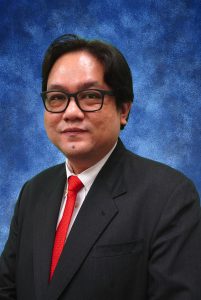
Synopsis – At the turn of the 21st century, early digital assistants were introduced with the promise of offering human-like support, though their capabilities remained limited by the technology of the time. Despite their polite interjections and speech-enabled suggestions, these systems operated on rigid decision trees and pre-programmed templates. For many users, they quickly became more intrusive than useful. Fast forward to the present day, and generative artificial intelligence (AI) systems have transformed how humans interact with technology. These systems can learn from vast datasets, track context, and generate highly personalised outputs. From composing emails to summarising documents or recommending health actions, AI is now seamlessly embedded in daily life. This presentation explores how such technologies can be leveraged within the field of occupational medicine. The discipline routinely generates large volumes of sequential and contextual data—ranging from health surveillance records and exposure logs to ergonomic assessments and psychological screening. Generative AI’s ability to detect patterns, predict outcomes, and support evidence-informed decisions presents an opportunity to reshape how occupational health professionals monitor risks, identify emerging hazards, and design targeted interventions. While AI cannot replace human clinical judgment, it can serve as a powerful ally in supporting safer workplaces, timely interventions, and adaptive control measures. The talk will explore use cases, limitations, and the ethical considerations of AI integration in occupational health practice.
Speaker’s Biodata – Dr Suhainizam Muhamad Saliluddin is a dedicated public health medicine specialist with a strong background in environmental and occupational health. Born and raised in Kuala Lumpur, he received early academic distinction through his selection to study at the prestigious Malay College Kuala Kangsar. He later pursued pre-university studies at Matrikulasi Universiti Kebangsaan Malaysia (UKM) before earning his medical degree from the National University of Ireland, Galway. Upon returning to Malaysia, Dr Suhainizam completed his clinical training at Hospital UKM, followed by service at the Ministry of Health Malaysia (MOH), where he was stationed at the Medical Development Division, MOH Headquarters, Putrajaya. He subsequently completed his Master of Public Health (Occupational Health) at Universiti Malaya, further cementing his interest in workplace and environmental exposures. His public health journey took him to Lahad Datu, Sabah, where he served as the Area Health Officer, overseeing rural health delivery and outbreak response. Currently, Dr Suhainizam is a senior faculty member at the Department of Community Health, Universiti Putra Malaysia. He leads the Environmental Health Medicine Unit and contributes actively to the Public Health Unit at Hospital Sultan Abdul Aziz Shah, where he combines teaching, clinical service, and research to advance the field of environmental and occupational health.
Symposium 5.2
Virtual Reality (VR) Application in Occupational Health
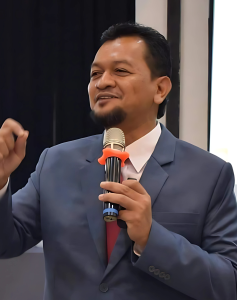
Synopsis – Innovative VR technology has the potential to significantly bolster public health interventions within occupational settings. By facilitating early detection and prevention, it aligns with the World Health Organization’s (WHO) global initiatives to mitigate the increasing prevalence of diseases, particularly in middle and low-income nations, including Malaysia. Additionally, it contributes to a reduction in the overall incidence of occupational related diseases, enhances the rate of occupational safety and health (OSH) notification rates and ultimately facilitates alleviation of the global disease burden. As such, MySmartOH’s VR Audiometry represents a significant advancement in audiometry technician training, fostering enhanced learning efficiency and skill mastery. This enhanced educational foundation enables more accurate and efficient hearing assessments, which are essential for the early detection of hearing impairments in industrial settings. It also supports a more proactive and effective approach to hearing conservation in the workplace and beyond.
Speaker’s Biodata – Dr Shawaludin Husin is a distinguished Occupational Health Specialist with over a decade of experience across Malaysia and the Asia-Pacific region. A certified Occupational Health Doctor (DOSH) and Approved Medical Examiner (AME) for Oil & Gas UK, Petronas, and Malaysia Petroleum Management (MPM), he currently serves as the President of the Malaysian Occupational Health Practitioners Association (MOHPA) and chairs the Occupational Health & Wellbeing Committee under the Asia-Pacific Occupational Safety and Health Organization (APOSHO). He holds a Master of Community Health Science (Occupational Health) and a Doctor of Medicine from Universiti Kebangsaan Malaysia. Dr Shawaludin is highly regarded for his expertise in ergonomic risk assessments, workplace health promotion, and the integration of digital health solutions for occupational safety automation. His leadership contributed to significant reductions in workplace injuries and improved return-to-work outcomes in multiple industrial settings. He has been honoured with the Outstanding Contribution to Occupational Health (2021) award by the UK Society of Occupational Medicine. Actively involved in training, he is also a certified Master Trainer (Cert IV – Australia) and certified Medical Impairment Assessor (NIOSH-SOCSO). His recent efforts include organising national conferences and webinars on musculoskeletal disorders and hearing conservation in the workplace.
Symposium 5.3
Revolutionizing Occupational Health: Digital Solutions for Early Disease Detection and Risk Stratification
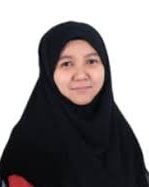
Synopsis – Occupational diseases often develop quietly in industries where workers are routinely exposed to physical, chemical, and ergonomic hazards and are only identified when symptoms have progressed. This is especially true in high-risk sectors such as manufacturing, construction, utilities, agriculture, hospitality, and quarrying. My talk will share DOSH’s recent research efforts in collaboration with Universiti Teknologi MARA to shift the focus from late-stage diagnosis to early identification and intervention for major occupational health problems. These include hearing loss from noise exposure, lung diseases linked to dust and chemicals, neurotoxicity, occupational skin diseases, musculoskeletal disorders, and mental health conditions. Over the past three years, we have developed digital screening tools and implemented them across selected industries in Malaysia, successfully screening more than 115,000 workers via a digital system. The tools capture work-related health indicators through structured assessments, incorporating job type, exposure history, self-reported symptoms, lifestyle factors, and risk assessment. We developed a digital risk stratification system using this data to identify which workers most need further follow-up or targeted health interventions. Although artificial intelligence is not yet part of the current platform, it has been initiated for the next phase. We are developing and embedding AI-driven analytics to enhance the screening system’s predictive accuracy, enabling even earlier detection and more personalised recommendations. This presentation will walk through the design of our approach, share what we have learnt from the large-scale implementation so far, and explore how this digital framework could be scaled up nationally. We aim to create a more proactive occupational health model that uses technology for efficiency and to protect and promote workers’ health before illness takes hold. We hope to help shape a healthier, more resilient workforce in Malaysia’s industrial sector through smarter screening and data-driven strategies.
Speaker’s Biodata – Professor Siti Munira Yasin is a Professor of Public Health Medicine at the Faculty of Medicine, Universiti Teknologi MARA (UiTM), specialising in Occupational and Environmental Health. She graduated from the University of Ireland, Galway (2000), and subsequently completed both her Master of Public Health and Doctor of Public Health(Occupational Safety and Health) at Universiti Malaya. She also holds an Advanced Certificate in Ergonomics from UCLA (2019) and a Diploma in Occupational Medicine from the Royal College of Physicians of Ireland (2024). She currently serves as an occupational health consultant at Hospital Al-Sultan Abdullah, Puncak Alam, and UiTM Private Specialist Centre, Sungai Buloh. She leads the Workplace Health and Safety Solutions Hub (WHaSSH) and previously headed the Centre for Occupational Safety, Health and Wellbeing (COSHaW). From 2015 to 2019, she led UiTM Selangor’s Tobacco-Free Campus Initiative. Her professional certifications include Chemical Health Risk Assessment (CHRA) (DOSH), ISO 45001:2018, and an Occupational Health Doctor(OHD) certification. Trained in noise risk assessment and workplace smoking cessation, she has conducted over 50 training sessions and workshops. Professor Siti Munira has secured national and external research grants, published more than 70 indexed articles, and contributed to national guidelines, books, and capacity-building initiatives.
Symposium 6.1
Advancing Precision Medicine in Malaysia: Insights from the MyGENOM Project
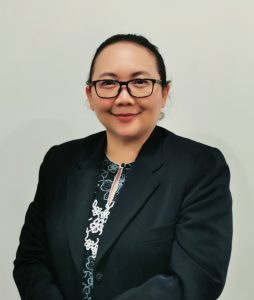
Synopsis – The MyGENOM Project represents a landmark national initiative to harness the power of genomics in transforming public health across Malaysia. As the country faces a rising burden of non-communicable diseases (NCDs), such as cardiovascular disease, diabetes, and cancer, this project aims to provide the scientific foundation for more personalized, predictive, and preventive approaches to healthcare. By capturing the rich genetic diversity of Malaysia’s multiethnic population, MyGENOM is generating a unique genomic dataset that reflects local health risks and variations in disease susceptibility. In this session, Dr Adiratna Mat Ripen will provide an overview of the MyGENOM Project’s objectives, structure, and early findings, with a focus on its implications for public health policy and practice. She will explore how integrating genomic data with traditional health surveillance systems can enhance risk stratification, guide more targeted screening and intervention programs, and ultimately improve population-level outcomes. The talk will include examples of how genetic insights are already informing decisions around disease prevention and treatment personalization in pilot programs. Dr Adiratna will also discuss the broader ecosystem required to support precision medicine in Malaysia—including infrastructure development, workforce training, data governance, and ethical oversight. Particular attention will be given to the importance of public trust, community engagement, and equitable access to genomic services. Additionally, she will highlight the importance of multi-stakeholder collaboration among government agencies, academic institutions, healthcare providers, and the public. This session will offer a forward-looking perspective on how precision medicine, powered by initiatives like MyGENOM, can be leveraged to build a more inclusive, effective, and sustainable healthcare system in Malaysia and the wider region.
Speaker’s Biodata – Dr Adiratna Mat Ripen is a distinguished immunologist and the Head of the Cancer Research Centre (CaRC) at the Institute for Medical Research (IMR), National Institutes of Health Malaysia. She holds both a medical degree and a PhD in Medical Science (Immunology) from Tokushima University, Japan. Dr Adiratna’s research centers on immunology, with a strong emphasis on rare diseases, cancer, and immunotherapy. Her laboratory actively investigates primary immunodeficiencies, immunomodulation, infectious diseases, and cancer-related immune responses. She has contributed to numerous high-impact publications, including studies on chronic granulomatous disease, whole-exome sequencing for inborn errors of immunity, and immune responses to COVID-19 infection. Her work has significantly advanced the understanding of immune system disorders in Malaysia, particularly through the establishment of a network of Malaysia Primary Immunodeficiency experts. Dr Adiratna’s contributions extend to national genomic initiatives, including the MyGENOM project, which aims to enhance genomic research and precision medicine in Malaysia. As a leading figure in Malaysian immunology, Dr Adiratna continues to drive impactful research and foster collaborations to improve public health outcomes.
Symposium 6.2
Genomics in the Age of Artificial Intelligence (AI): Exploring the Future of Data Integration, Innovation, and Impact
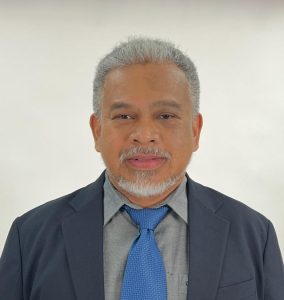
Synopsis – The integration of artificial intelligence (AI) into genomics is transforming clinical care by enabling faster diagnoses, more precise treatments, and deeper insights into the molecular basis of disease. As genomic datasets grow in size and complexity—spanning whole-genome sequencing, transcriptomics, epigenomics, and more—traditional analytical methods increasingly struggle to keep pace. AI brings powerful capabilities in pattern recognition, predictive modelling, and data integration, offering a transformative approach to decoding the genome with unprecedented precision and speed. This session explores how AI is reshaping genomics, particularly in clinical settings, with focus areas including genome sequencing, functional analysis, and variant interpretation. Special emphasis will be placed on how AI integrates multi-omics data—genomic, epigenomic, transcriptomic, and proteomic, into unified biological insights. Real-world applications will be highlighted, such as AI’s impact on cancer genomics, rare disease diagnosis, and precision therapeutics. For example, tools like AlphaFold have revolutionised protein structure prediction, while DeepVariant is improving variant interpretation in clinical genomics. Despite its transformative potential, AI in genomics faces challenges including data privacy, model interpretability, and the need for robust ethical frameworks. Addressing these challenges is essential for the responsible deployment of AI in healthcare. Looking ahead, the synergy between genomics and AI promises to reshape how we approach health, disease, and innovation.
Speaker’s Biodata – Dr Saharuddin bin Mohamad is an Associate Professor at the Institute of Biological Sciences, Faculty of Science, Universiti Malaya. He obtained his Doctor of Engineering in Functional System Engineering from Tokushima University, Japan, in 2003, followed by a postdoctoral fellowship in bioinformatics at the Nara Institute of Science and Technology (NAIST), Japan. Since joining Universiti Malaya in 2004, he has been a core member of the Bioinformatics Programme. His research focuses on structural bioinformatics, computer-aided drug design, and protein engineering. He is also actively involved in molecular bioinformatics projects related to algorithm development, analysis, and data mining of Next Generation Sequencing (NGS) data in genomics, metagenomics, transcriptomics, and whole-exome studies. Dr Saharuddin has played a key role in academic programme development and has served as Programme Coordinator for the Bachelor and Master of Bioinformatics degrees (2013–2014, 2019–2020, 2024–2025), and as Head of the Institute of Biological Sciences (2020–2022). Since 2017, he has led the Centre of Research in Systems Biology, Structural Bioinformatics and Human Digital Imaging (CRYSTAL), Universiti Malaya. He also served as the Vice President of the Malaysian Society of Bioinformatics and Computational Biology (MaSBiC) for two terms (2018–2022), contributing actively to the advancement of bioinformatics in Malaysia.
Symposium 6.3
Enhancing Health Sector Preparedness and Response Through Biomedical Technology for Disease Prevention and Management
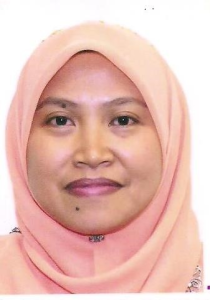
Synopsis – Laboratories play a pivotal role in the detection, prevention, and management of diseases. Strengthening their capacity through biomedical technology is crucial for improving health sector preparedness and response, especially in the face of emerging and re-emerging infectious diseases, pandemics, and public health emergencies. This focuses on leveraging advanced biomedical technologies – such as automated diagnostic platforms, molecular testing tools (e.g., Polymerase chain reaction, CRISPR-based diagnostics), biosensors, and integrated laboratory information systems – to transform laboratory operations into more responsive, accurate, and efficient components of the healthcare system. These technologies enhance early detection of pathogens, streamline sample processing, support surveillance efforts, and enable rapid data sharing with public health authorities. The initiative also highlights the importance of laboratory biosafety, quality assurance systems, and workforce capacity-building as integral to successful technology adoption. By upgrading laboratory infrastructure and integrating digital technologies, health systems can achieve faster turnaround times, improved disease tracking, and more effective outbreak containment. Ultimately, this laboratory-centered approach aims to create a resilient diagnostic backbone that supports evidence-based decision-making, enhances real-time preparedness, and ensures timely interventions to protect population health.
Speaker’s Biodata – Dr Norita binti Shamsudin is a Consultant public health physician and the current Director of the Ipoh Public Health Laboratory, Ministry of Health Malaysia (MOH), a key regional reference centre for public health surveillance and diagnostics in Northern Peninsular Malaysia. Appointed in June 2024, she oversees laboratory operations that support outbreak detection, disease monitoring, and emergency response across four states. With over 12 years of experience in public health, Dr Norita has played a central role in the development and implementation of national programmes and policies targeting zoonotic diseases. Her leadership extends to international health, where she contributed to global health initiatives, and to food safety and quality, having led MOH programmes in this area for four years. Dr Norita earned her medical degree in 1999 and completed a Master of Community Medicine (Occupational Health) at Universiti Kebangsaan Malaysia in 2008. Her multidisciplinary expertise in infectious disease surveillance, laboratory systems, and environmental health positions her as a vital contributor to Malaysia’s disease control and preparedness capacity.
Symposium 7.1
ScreenMen: Empowering Men to Screen
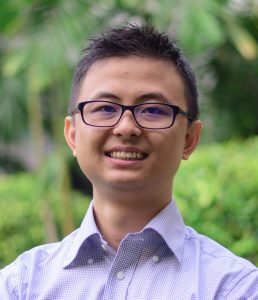
Synopsis – Health screening uptake among men in Malaysia remains suboptimal. To address this, ScreenMen, a mobile-friendly web application, was developed to raise awareness about health risks, encourage healthy behaviours, and empower men to pursue evidence-based screening. The development process of ScreenMen was guided by behavioural theories, existing literature, and insights from men themselves. Through interviews with 31 community-based men, researchers identified key barriers and enablers to screening, and gathered feedback on desirable features for a screening app. ScreenMen promotes comprehensive and evidence-based screenings across several health domains, including lifestyle risks, cardiovascular diseases, cancers, infectious diseases, and mental health, incorporating local and global clinical guidelines. To improve relevance and usability for men, the app incorporated male-friendly features and followed a user-centred, iterative design approach. Prototypes were continuously refined through testing with experts and community members. The final version of ScreenMen includes a 2-minute video to address misconceptions on screening; an algorithm-driven health assessment with education function (full and quick modes); and a list of frequently asked questions. A pragmatic online randomised controlled trial, conducted via Facebook, evaluated ScreenMen’s effectiveness. At the 3-month follow-up, men using ScreenMen had significantly higher actual screening rates than the control group (23.2% vs 12.9%, p=0.047). These users also intended to undergo screening sooner (median 6 vs 12 months), and demonstrated better knowledge at immediate, 1-month, and 3-month intervals. A pilot implementation study has also been conducted to implement ScreenMen in public health clinics. Early results suggest men were more likely to engage with ScreenMen through QR codes on waiting area buntings (n=30) than via clinician-delivered postcards (n=9) or posters (n=0). ScreenMen demonstrated a full spectrum of research, from design to real-world application, in using a digital solution enhancing men’s health. Future studies should continue to explore how digital tools can improve the health of the public.
Speaker’s Biodata – Dr Teo Chin Hai is a senior lecturer in the Department of Primary Care Medicine, Faculty of Medicine, Universiti Malaya. He is also the Lead of the Mobile Health section under the UM eHealth Unit. His research work revolves around using Information and communication technology (ICT) and the best scientific evidence to innovate effective solutions to improve healthcare. He is familiar with digital health research methodologies, ranging from conducting needs assessments, user-centred design and development, user testing, and effectiveness evaluation (randomised controlled trials) to implementation. He has completed, and has many ongoing, digital health projects including the COVID-19 symptom monitoring system, clinical decision support tools, digital medical decision aids for patients, advance care planning, dengue monitoring systems, and the men’s health screening web-app (ScreenMen). Dr Teo will be coordinating a Master’s programme in digital health and is responsible for integrating digital technology into the medical curriculum. Additionally, he promotes eLearning initiatives such as Massive open online courses (MOOCs) and reusable learning objects for healthcare. Nationally, Dr Teo collaborates with the Malaysian Ministry of Health to develop and revise the National Men’s Health Plan of Action. He promotes evidence-based practice and raises awareness of men’s health wherever applicable, especially using digital solutions.
Symposium 7.2
Harnessing Artificial Intelligence (AI) and Digital Technologies to Address the Challenges of Ageing in Public Health

Synopsis – As Malaysia transitions into an ageing nation, public health systems face mounting challenges in providing equitable, efficient, and person-centred care for older adults. This talk explores how artificial intelligence (AI) and digital technologies are revolutionizing the way we approach ageing-related health issues—ranging from early disease detection and fall prevention to chronic disease management and social connectedness. Drawing from real-world research, innovations, and pilot projects, the presentation will showcase how AI-integrated systems, such as wearable health monitors, predictive analytics, and personalised interventions, are being deployed to enhance health outcomes and support ageing-in-place initiatives. The talk also highlights the crucial role of digital literacy among older persons, which is often overlooked. Without the confidence and skills to use technology, many seniors may miss out on digital health innovations. We must design inclusive, user-friendly solutions and provide education and support to empower older adults to benefit fully from these tools. With the right approach, AI and digital health technologies can strengthen our public health system while enabling older Malaysians to age with dignity, safety, and better quality of life.
Speaker’s Biodata – Dr Siti Anom Ahmad is a Professor at the Faculty of Engineering, Universiti Putra Malaysia (UPM). She is the former Director and a current Research Associate at the Malaysian Research Institute on Ageing (MyAgeing®). She completed her Bachelor of Engineering in Electronic and Computer Engineering at UPM in 1999. She earned her PhD in Electrical and Electronics from the University of Southampton, UK, in 2009, following an MSc in Microelectronics System Design from the same institution in 2004. Professor Siti Anom is a Professional Engineer registered with the Board of Engineers Malaysia (BEM), a Chartered Engineer with the Institute of Engineering and Technology (IET, UK), a Senior Member of the Institute of Electrical and Electronics Engineers (IEEE), and a member of the Institution of Engineers Malaysia (IEM). Her research expertise spans biomedical engineering, gerontechnology, and intelligent control systems, with a strong focus on developing innovative solutions to enhance independent living and healthcare technologies.
Symposium 7.3
Digitalisation in Family Health Services in Sarawak: Experience and Challenges
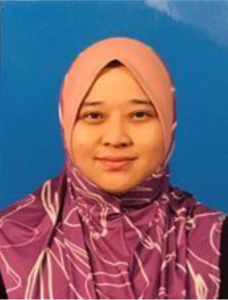
Synopsis – Sarawak, Malaysia’s largest state, is embracing digitalisation to improve family health services and bridge healthcare disparities between urban and rural populations. With over 2.5 million residents—approximately 45% of whom live in remote areas—access to healthcare has long been a challenge. To address this, the Sarawak government has allocated RM10 million to digitise 150 of its 271 public health clinics, impacting 73% of primary care patients. Central to this initiative is the implementation of a cloud-based Clinic Management System (CCMS), enhanced with Artificial Intelligence (AI) to streamline workflows and ensure robust disaster recovery capabilities, securing patient data even in emergencies. In parallel, the Ministry of Health aims to expand teleconsultation services to 900 clinics nationwide by the end of 2024. As of July 2024, 287 clinics have already implemented virtual consultations, covering areas such as antenatal care and chronic disease management. To improve rural access, plans are underway to deploy 2,000 telehealth kiosks across Malaysia over the next two years. These kiosks will allow residents to conduct self-checks and consult healthcare providers remotely, helping reduce overcrowding in rural facilities. Despite these advancements, challenges remain. Many rural areas face poor internet connectivity and outdated Information and Communication Technology (ICT) infrastructure. Additionally, healthcare professionals require ongoing training to effectively use digital tools, and concerns around data security and patient privacy demand stringent safeguards. To conclude, Sarawak’s journey towards digitalising family health services illustrates a commitment to overcoming geographical and infrastructural challenges to provide equitable healthcare. While significant strides have been made, addressing the existing challenges is crucial to achieving a fully integrated and accessible digital health ecosystem for all communities in Sarawak.
Speaker’s Biodata – Dr Noor Baizura binti Jamali is a public health medicine specialist with a strong passion for epidemiology and disease prevention. She is currently serving as the Samarahan Divisional Health Officer, where she plays a key role in managing public health responses, particularly during outbreaks. Dr Noor Baizura holds a Doctor in Public Health from Universiti Malaysia Sarawak, where she also completed her medical degree in 2005. Her expertise includes outbreak investigation, risk communication, and the delivery of timely treatment and preventive measures during epidemics. She is known for her ability to foster strong community relationships and effectively disseminate public health information. Dr Noor Baizura brings a proven track record of delivering high-quality, results-oriented work under pressure. She demonstrates strong leadership in team-building and is highly skilled in handling sensitive and confidential matters. With proficiency in data analysis, healthcare management, and digital health tools, she is particularly experienced in the use of Teleprimary Care – Oral Health Clinical Information System (TPC-OHCIS). Her multidisciplinary strengths enable her to navigate complex health challenges while working collaboratively across sectors to improve population health outcomes.
Symposium 8.1
Enhancing Medical Readiness - Transforming Health Screening Effectiveness Utilising Lifetime Health Record System in the Military
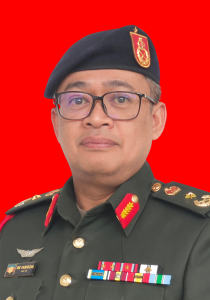
Synopsis – The Malaysian Armed Forces (MAF) has been at the forefront of healthcare digitalisation since the early 2000s, recognising the strategic importance of maintaining force readiness through early and effective health interventions. As part of this transformation, the MAF introduced the CENTROMERES initiative—a Centralised Medical Repository System anchored by the Military Lifetime Health Record (MLHR) platform. This digital health ecosystem is designed to revolutionise how health data is captured, accessed, and analysed across the military healthcare continuum. The objective is clear: to shift from reactive treatment to proactive health risk management. By leveraging digital health tools, particularly through comprehensive and routine health screening, MAF aims to identify potential health threats early and intervene before they compromise operational effectiveness. The MLHR system serves as a centralised and lifelong repository of each soldier’s medical data, offering a dynamic and longitudinal view of their health status. With the integration of machine learning (ML) and artificial intelligence (AI), the system aspires to evolve further into a predictive health analytics platform. This capability will empower healthcare professionals with actionable insights, supporting timely clinical decisions while also promoting healthy behaviours among personnel. The ultimate vision is to create a military healthcare environment that is not only responsive but also anticipatory, ensuring that every soldier is physically and mentally fit for duty. This presentation explores the journey, challenges, and future direction of the MAF’s digital healthcare transformation. It highlights how data-driven technologies and the MLHR platform are being strategically employed to enhance medical readiness and operational sustainability—setting a new standard for modern military medicine in the region.
Speaker’s Biodata – Brigadier General (Dr) Faridzal Harrymen bin Mohd Din is a senior military medical professional with over 25 years of distinguished service in the Royal Medical & Dental Corps of the Malaysian Army. He currently serves as the project manager for MAF CENTROMERES, a major initiative to implement a lifelong electronic health record system for Malaysian Armed Forces personnel. Under his leadership, the system, which was originally developed in 2015, has undergone a major upgrade to enhance its functionality and better support military healthcare delivery. Dr Faridzal is presently leading the next phase of Centralised Medical Repository System (CENTROMERES) Project, which aims to connect all Malaysian Armed Forces hospitals through a centralised Health Information System (HIS), establishing an integrated, interoperable healthcare network across the defence sector. He holds a Doctor of Public Health and a Master of Public Health from Universiti Malaya and has completed specialised training in medical strategic leadership, Chemical, Biological, Radiological, Nuclear, and Explosive (CBRNE) preparedness, and army flight surgery. His leadership roles have included serving as Head of Health Services Management at MAF Headquarters and Commanding Officer of the 3rd Medical Battalion. He has also contributed to United Nations peacekeeping missions and conducted research in military health and informatics.
Symposium 8.2
Safeguarding Ethics and Ensuring Safety in the Era of Digital Health
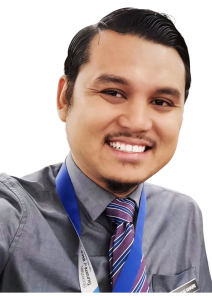
Synopsis – The rapid integration of digital health technologies—driven significantly by advancements in artificial intelligence (AI)—is fundamentally reshaping healthcare delivery, including in public health. AI offers unprecedented potential, from predictive analytics for disease outbreaks to personalised health interventions, enhancing efficiency, accessibility, and population health outcomes. However, this transformation introduces complex ethical challenges and safety concerns that require rigorous scrutiny, particularly when viewed through the lens of public health principles and Malaysia’s unique context. From a public health perspective, ethical considerations around AI are critical. Algorithmic bias, for example, can reinforce or exacerbate existing health inequities among diverse population groups if not addressed, undermining the core public health objective of health equity. Issues of data privacy, security, and informed consent are magnified when dealing with large-scale population health data, potentially eroding public trust—an essential component of effective health programmes. Ensuring equitable access to the benefits of AI is another key challenge. In Malaysia, the healthcare system is undergoing digital transformation through initiatives such as telehealth and electronic health records, as outlined in national strategic plans. As such, the ethical governance of AI becomes increasingly important. Development and deployment must consider the country’s multicultural society and healthcare infrastructure to ensure fair benefit distribution and cultural appropriateness. Establishing ethical safeguards proactively is vital to harness AI’s potential responsibly. This presentation will explore core ethical principles—fairness, transparency, accountability, privacy, and safety—in the context of AI in digital health. It will address specific challenges and propose potential frameworks and collaborative strategies involving policymakers, healthcare professionals, technologists, and the public, tailored to Malaysia’s national needs.
Speaker’s Biodata – Encik Mohd Firdaus bin Mohd Khairi is a technology leader with over 15 years of experience in computer science and digital systems, currently serving in the Ministry of Digital Malaysia. His career spans a range of strategic Information and communication technology (ICT) roles across the public sector, where he has contributed to national-level digital initiatives and systems development. With a strong foundation in ICT, he brings a dynamic blend of technical expertise, data science proficiency, and business acumen. His current focus is advancing artificial intelligence (AI), particularly in the areas of governance, ethics, and policy development. He aspires to pursue a PhD in AI, combining real-world technical experience with academic rigour to drive impactful change in the field. Encik Firdaus has established strong regional and international networks, collaborating with key institutions such as the International Telecommunications Union under the United Nations (UN), UN-Educational, Scientific and Cultural Organization (UNESCO), and digital counterparts from Thailand, Indonesia, and the Philippines. These efforts have helped position Malaysia as a proactive contributor to global AI dialogue, particularly in ethical AI advancement and cross-border policy collaboration.
Symposium 8.3
Addressing the Digital Divide: Ensuring Equity in the Age of Digital Health
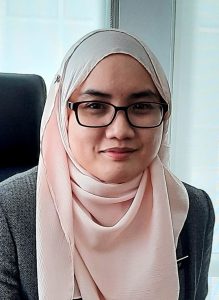
Synopsis – Digital health has progressed by leaps and bounds, with increasing recognition of its potential to enhance access to care. Nevertheless, disparities in its reach and accessibility have also been acknowledged, whereby the digital divide poses various challenges in the delivery of healthcare services. With the conceptualisation of the social determinants of health, the interconnections between health status and living conditions or surroundings are important considerations in the pursuit of health equity. The emergence of digital determinants of health introduces an additional layer of complexity in addressing health equity. This presentation will cover an overview of the digital divide in health, touch on determinants of inequalities and share some ideas on how digital health can be more accessible and inclusive.
Speaker’s Biodata – Dr Awatef Amer Nordin is a public health medicine specialist at the Institute for Health Systems Research (IHSR), Malaysia. She holds a medical degree from the International Medical University (IMU) and completed both her Master of Public Health and Doctor of Public Health at Universiti Malaya. She is currently affiliated with the Centre for Health Equity Research at IHSR, where her work centres on evidence generation, synthesis, and knowledge translation to support health system decision-making. Her research focuses on understanding population perceptions of healthcare-seeking behaviour, patterns of healthcare utilisation, and inequities in access to healthcare services. She has a strong interest in identifying and addressing healthcare disparities, with particular attention to vulnerable populations. In addition, Dr Awatef’s work includes growing engagement with issues related to older adults’ health and their access to appropriate and equitable care. Her interdisciplinary expertise bridges epidemiological methods and health equity frameworks, supporting policies that aim to reduce systemic barriers in Malaysia’s health system. Through her work, she contributes to national efforts in achieving universal health coverage and people-centred healthcare.
Symposium 9.1
From Clinic to Home: Advancing Early Childhood Developmental Screening through Malaysian Digital Health Research

Synopsis – Early identification of children’s developmental delays enables timely interventions and improves long-term outcomes for children and their families. However, these efforts often face low parental awareness, overburdened clinics, and a lack of culturally relevant screening tools. In response, a diverse team of researchers from the Institute for Clinical Research, experts from Sunway University, Universiti Malaya, University of Technology Sarawak, National Early Childhood Intervention Council, private sector collaborators such as SPARK Child Development Centre, TOY EIGHT and Angsana Health have come together. Their goal is to develop scalable, innovative solutions, starting in Malaysia and expanding across ASEAN and beyond to support early childhood development. Spark@Grow was designed to empower parents in the early screening of children aged 0 to 42 months. The app offers a bilingual, user-friendly interface covering motor, language, and social development, enhanced with interactive activities and Artificial Intelligence (AI)-powered features. The initiative includes a novel eye-tracking system developed with Sunway Baby & Child Lab to aid early autism screening. TOY8 digital app, designed for children aged 3 to 5 years, combines game-based assessment with parental input to detect early signs of developmental delay. The latter is accompanied by a personalised intervention package currently in pilot testing. Lastly, the Autism Virtual Early Screening Tool (AVEST) uses the M-CHAT-R Questionnaire and video uploads to determine autism risk. This work illustrates how AI and digital tools can improve screenings, reduce the strain on healthcare systems, and improve equity. These innovations align with Malaysia’s public health goals, offering transformative potential for digital solutions in child development and health care.
Speaker’s Biodata – Professor Toh Teck Hock is a consultant paediatrician and Head of the Clinical Research Centre at Sibu Hospital, Sarawak. His clinical work spans general paediatrics, developmental-behavioural paediatrics, and community child health. He holds academic appointments at SEGi University and Sunway University and collaborates extensively with international institutions including the World Health Organization (WHO), United Nations Children’s Fund (UNICEF), Centers for Disease Control and Prevention (CDC) Atlanta, Duke University, and Fudan University.
Professor Toh has delivered over 500 scientific presentations. His research portfolio includes more than 125 clinical studies and over 100 peer-reviewed publications, accumulating nearly 1,100 citations (Google Scholar). He has also authored handbooks on Attention-Deficit/Hyperactivity Disorder (ADHD), language development, and breastfeeding, along with children’s storybooks and Chinese literary prose. He actively serves on several committees related to child health, early intervention, sports, and disabilities. He is a Global Medical Advisory Committee Member and Asia Pacific Regional Clinical Advisor (Health Promotion) for Special Olympics, Vice President of the National Early Childhood Intervention Council, and Board Member of the Malaysian Autism Resource Foundation.
His accolades include the Outstanding Young Malaysian Award (2010), MMA Public Service Award (2014), SENIA Advocacy Award (2018), and the Special Olympics Global Golisano Health Leadership Award (2025).
Symposium 9.2
Artificial Intelligence (AI) in Cardiovascular Disease
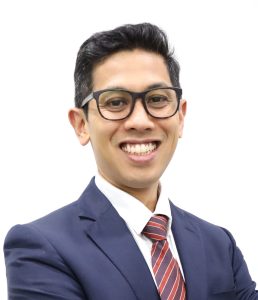
Synopsis – Artificial intelligence (AI) is transforming the way cardiovascular care is delivered. This presentation will highlight three key areas where AI is making a significant impact: identifying population-level risk, enhancing diagnostic accuracy, and supporting home-based care. The session begins by examining how AI can more effectively identify individuals at risk of cardiovascular disease. By analysing large volumes of health data—including lifestyle, clinical, and demographic factors—AI tools enable earlier identification of at-risk individuals and support timely preventive action. The next focus is on AI applications in medical imaging, particularly ultrasound. AI is helping to improve the accuracy and consistency of heart disease diagnosis, especially in primary care settings. This is especially valuable for detecting early signs of cardiac issues in high-risk populations, such as individuals with diabetes. The final section explores the role of AI in enabling home-based care. Through wearable devices and remote monitoring technologies, patients can remain engaged with their health and easily adhere to personalised treatment plans from the comfort of their homes. This approach is especially beneficial for managing chronic cardiovascular conditions. Together, these advances demonstrate the growing role of AI in reshaping cardiovascular care across prevention, diagnosis, and long-term management.
Speaker’s Biodata – Professor Sazzli Shahlan Kasim is a Consultant Cardiologist and Professor of Medicine, currently serving as the Director of the Cardiovascular Advancement and Research Excellence (CARE) Institute at Universiti Teknologi MARA (UiTM), Malaysia. He was the Founding Director of Hospital Al-Sultan Abdullah (HASA), where he successfully led the RM599 million hospital development from initial design to full operational readiness, even amidst the challenges of the COVID-19 pandemic. With over 20 years of clinical experience and more than 3,000 cardiovascular procedures performed, Professor Sazzli has been instrumental in establishing cardiac services in North Selangor. He also pioneered Malaysia’s first Doctorate in Cardiology programme and has supervised over 20 postgraduate candidates. As a researcher, he has authored more than 80 peer-reviewed publications, secured over RM5 million in competitive grants, and led over 15 major clinical trials. His research interests include artificial intelligence in cardiovascular care, digital health, and cardiometabolic risk prediction. He co-developed several national tools and applications such as MyHeart Coach, STEMI Calc, and MyHeart Rehab. Professor Sazzli is a fellow of six international societies, a former council member of the National Heart Association of Malaysia, and a contributor to the Malaysian Medical Council and Malaysian Qualifications Agency. He is a national leader and pioneer in integrating artificial intelligence, health economics, and policy into cardiovascular innovation.
Symposium 9.3
Artificial Intelligence (AI)-Driven Patient Self-Management as a Tool for Advancing Clinical Epidemiology
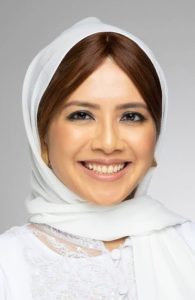
Synopsis – What happens during the 99% of a patient’s life spent outside hospital walls? The “data in the wild” holds untapped insights that can close the loop between clinical visits and everyday life. This presentation reveals our collaboration with Malaysia’s Ministry of Health cardiologists, where the TrackCare AI App is being piloted for heart failure patient self-management. As heart failure shows alarming growth among younger populations, we tackle a crucial question: How can real-world data transform both individual care and epidemiological understanding? Traditional healthcare captures only fragmented moments during clinical visits, leaving critical gaps in our understanding of disease trajectories. TrackCare AI addresses this by empowering patients as active participants in both their personal health management and broader medical research. This dual approach not only improves individual outcomes but reshapes how we understand disease patterns across populations. The session will present findings from a digital clinical trial evaluating a novel small-data, individualised machine learning model for predicting acute decompensated heart failure. By integrating device sensor data with patient-reported symptoms, the system sheds light on the “dark periods” between clinic visits. Early retrospective study results suggest new potential for predicting cardiac changes while generating epidemiological insights that traditional models miss. The team’s pilot study shows promising results in detecting subtle changes in cardiac status using vital signs and symptomatic data, with ongoing work to incorporate contextual and environmental factors, opening exciting opportunities for advancing clinical epidemiology.
Speaker’s Biodata – Dr Nik Nailah Abdullah is a pioneering force in the field of artificial intelligence and digital health. She is the Founder, CEO, and Director of GreenSheart Sdn Bhd, a deep-tech artificial intelligence (AI) startup focused on transforming chronic disease management through intelligent systems. With a PhD in Informatics (Summa Cum Laude) from the University of Montpellier II, France, Dr. Nik Nailah brings over a decade of experience at the intersection of AI, cognitive science, and healthcare innovation. Her groundbreaking “Activity States Framework” laid the foundation for her ongoing work in AI-powered predictive cardiology, which now includes a patent-pending technology. She has also designed digital clinical trial protocols for small-data machine learning applications, which received national ethics approval—an exceptional milestone in Malaysia’s digital health ecosystem. Currently serving as a lecturer and research scientist at Monash University Malaysia, Dr Nailah has held research and academic appointments at the National Institute of Informatics (Tokyo), Open University (UK), and MIMOS Berhad. She also served as a project manager at Medtronic Plc, where she facilitated major healthcare collaborations. Her thought leadership has been showcased at TEDx, Google Tech Talks (Mountain View), and Technovisionaire (Milan). Today, she actively partners with Malaysia’s Ministry of Health to co-develop integrated cardiac care systems, bridging technology and clinical practice for improved patient outcomes.



